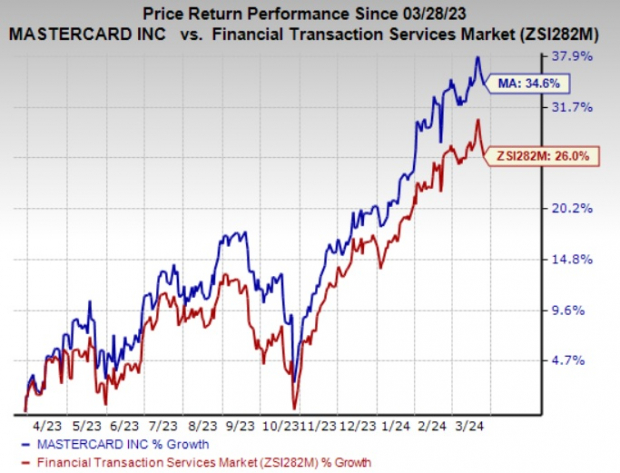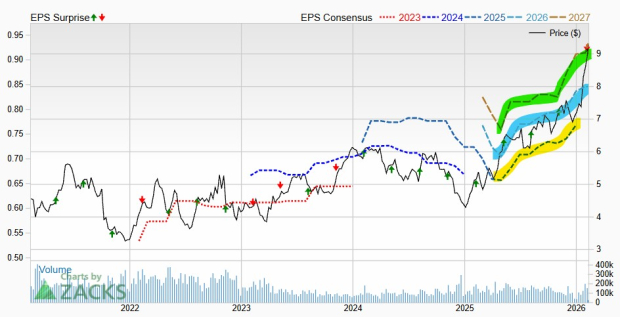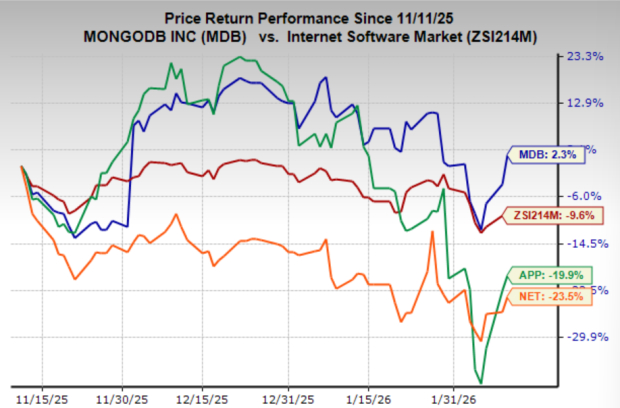Mastercard Incorporated MA has finally reached a momentous settlement agreement with U.S. merchants, marking the conclusion of a protracted battle that spanned nearly two decades. The deal dictates a reduction in U.S. credit card interchange rates by Mastercard while also granting merchants increased autonomy in imposing surcharges on credit card transactions. The agreement, dependent on the Eastern District Court of New York’s final approval, arose following a series of grievances by merchants against MA, Visa Inc. V, and other financial entities.
The roots of discontent can be traced back to 2005 when complaints surfaced regarding Mastercard and Visa’s interchange structure and point-of-sale acceptance regulations. These issues led to allegations of merchant exploitation through excessive charges for processing Mastercard and Visa-branded credit and debit cards.
Under the settlement terms, the reduced interchange rates will affect U.S.-issued consumer credit and commercial credit transactions at merchant locations nationwide. These revised rates will endure for a five-year period. Additionally, merchants can anticipate enhanced flexibility in applying surcharges on credit card transactions, offering them a more diversified range of options to explore.
Upon receiving final approval, the alterations to network regulations are slated for implementation in late 2024 or early 2025. This strategic move aims to enhance transparency and certainty among merchants regarding payment card acceptance programs, ensuring consumer protection remains a top priority.
This development is poised to benefit Mastercard significantly by resolving a majority of its outstanding U.S. merchant litigations. This resolution will relieve the company of the financial burden associated with regulatory procedures, legal disputes, and legislative engagements. The swelling litigation provision expenses in recent years have inflated the firm’s total operational costs, impeding MA’s bottom-line growth.
For the fiscal years 2023 and 2022, Mastercard incurred pre-tax charges of $344 million and $133 million, respectively, in anticipation of changes in merchant claims opting out of the U.S. merchant class litigation.
The presence of a reputable ally like Mastercard, anchored by a robust digital infrastructure cultivated through symbiotic collaborations and investments, instills both consumers and merchants worldwide with a sense of reassurance and an enriched payment experience.










